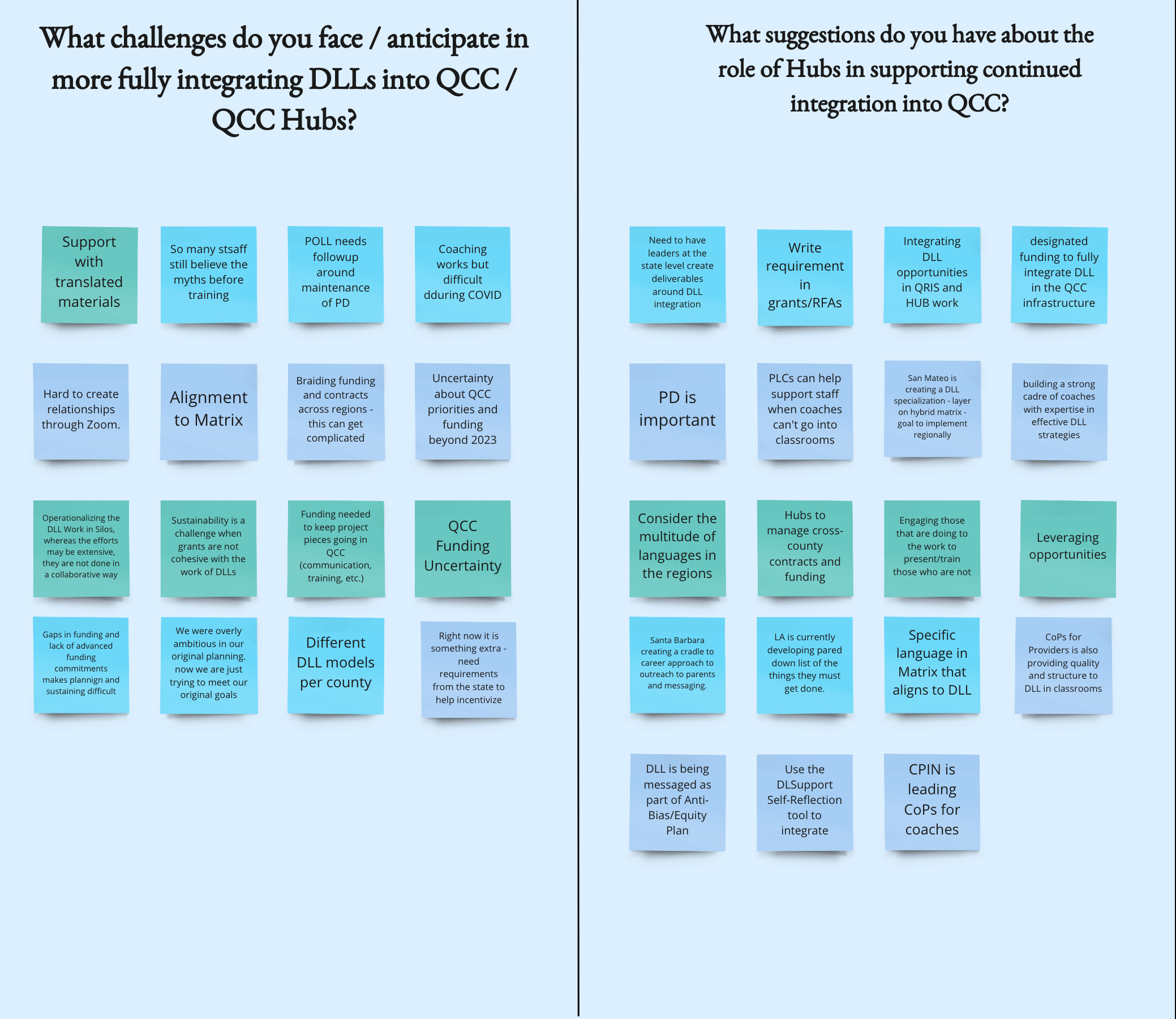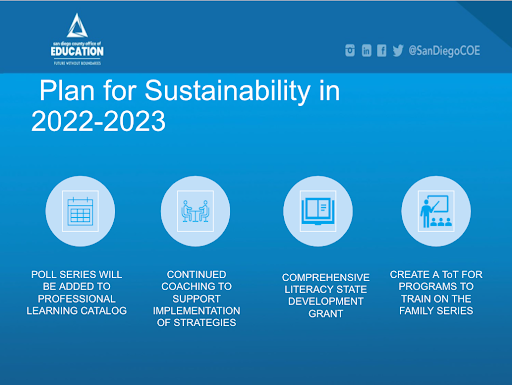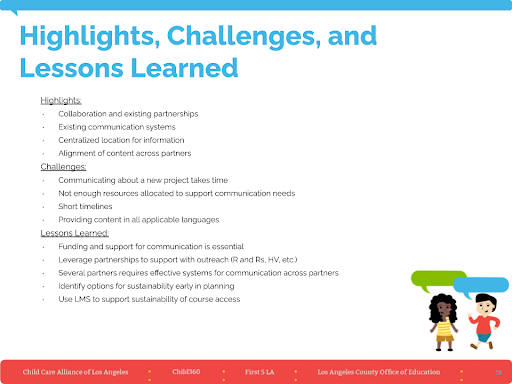First 5 California DLL Pilot Community of Practice: January 2022 Meeting Summary
By: Early Edge California, Advancement Project California, and Glen Price Group (GPG), in partnership with First 5 California and the California Department of Education
This blog is the eighth post in a series of blog posts about the DLL Pilot CoP. Click here for additional blog posts.
Resources for Educators and the Field
Tools
- California Collaborative for Educational Excellence Resources to Support English Learners Newsletter
- Dual Language Learners Supports self-reflection tool
- Personalized Oral Language Learning Strategies (POLL)
- Multilingual Learning Toolkit
Videos
Policy Implications
- Policy makers and Quality Counts California (QCC) leaders should consider changes to the QCC structure to allow for counties to more easily align the matrix, the tools used by coaches, and the on-the-ground efforts of coaches in order to better serve DLLs and to include DLL specific quality indicators (similar to Fresno county).
- Policy makers should consider earmarking specific funds for the translation of materials, especially professional development related materials. Professional development is most successful when shared in the home languages of educators, meaning funds for translation are an integral, often overlooked, need for any funding opportunity relating to PD development.
The January meeting of the F5CA DLL Pilot Community of Practice (CoP) focused on embedding DLL strategies in local QCC infrastructure including lessons learned for sustainability and scaling. With this focus in mind, QCC regional hub representatives were included in this meeting and will be part of CoP meetings for the remaining 5 months of this project.
CoP participants began by discussing the challenges anticipated in more fully integrating DLLs into QCC and by providing suggestions for how QCC hubs could support counties to better integrate DLL supports in their quality improvement efforts.
To launch the group’s learning on this topic, the CoP heard from panelists representing San Diego and Los Angeles (LA) counties’ DLL Pilot projects.
San Diego started by sharing their DLL initiative goals:
- Strengthen caregiver’s knowledge on the use of instructional strategies that are effective in supporting children who are DLLs, while providing access to technology and coaching of instructional strategies.
- Strengthen home-school connection by providing interactive strategies and access to technology for families to support children’s language development in both their home language and English.
San Diego selected Personalized Oral Language Learning Strategies (POLL) as their approach to strengthening educator and family knowledge. To this end, QRIS Coaches and Trainers attended a Train the Trainer for POLL strategies in February 2021.
San Diego’s work includes both Spanish and English professional learning opportunities. The 5-part Educator Series started in April 2021 and the 4-part Family Series is scheduled to begin in January 2022. Incentives for participation include a variety of options including iPads, books in multiple languages, and stipends for educator participants. San Diego also shared how they hope to expand and sustain this work in the coming 2 years.
LA also presented their Pilot work. LA’s goal is to provide research highlights and strategies that will assist early educators in guiding our youngest DLLs, ages birth to 5 years, in developing their home language and English. A core belief is that a child’s family, their home language, and their culture are assets they bring to our early learning programs.
LA shared several highlights, challenges, and lessons learned as outlined on the following slide:
CoP members discussed the presentations in breakout rooms, sharing lessons learned, strategies, resources, and challenges faced in better integrating DLLs into local QCC systems. Participants were also asked specifically what role the Hubs could play in supporting counties with implementing and sustaining DLL efforts. Several themes include:
- It would be helpful to have an agreed upon plan in advance of launching work with QCC regional hubs.
- QCC regional hubs can provide support by encouraging the state to better align QCC matrices to integrate DLLs.
- Regional hubs could help counties discuss and begin planning for preschool through grade three alignment efforts.
- Hubs can help facilitate local partnerships and help ensure that classes are full, and play a role in logistics such as registrations, program start-ups, creating forms, and gathering demographic information and translations.
- Hubs could play a role in implementing a communications campaign on the benefits of bilingualism. This is especially important as myths and misinformation regarding home language and English language development persist.
- Economies of scale could be reached if Hubs play a role in ensuring the sustainability of trainings by developing online modules of study.
“I echo the importance of educator voice. We meet monthly with in-home providers and learn a lot from them. It takes time to build and co-develop [professional development opportunities] from multiple perspectives.”
—CoP Member
This blog will be updated regularly to share the emerging lessons learned, needed resources, and policy recommendations coming from the DLL Pilot CoP meetings. Learn more about the First 5 CA DLL Pilot.



